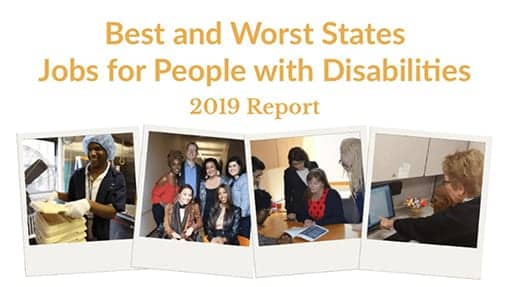Geography has an impact on employment outcomes for Americans with disabilities, with people in North Dakota twice as likely to have jobs as those in West Virginia, according to the 2018 Annual Disability Statistics Compendium, released by Institute on Disability at the University of New Hampshire.
In addition, per the report, Americans with disabilities saw a slowdown in job gains compared to those of the previous year and a rising employment rate.
The report, which compiles data collected by the Census Bureau, is intended to equip policy-makers, self-advocates and others with clear statistics on disability in America today. Out of more than 20 million working-age people with disabilities, 7.5 million have jobs. This data also shows the serious gaps that remain between disabled and non-disabled Americans — 37% of US civilians with disabilities ages 18-64 living in the community had a job, compared to 77.2% for people without disabilities, according to a media release from the nonpartisan advocacy group RespectAbility.
“Our nation was founded on the principle that anyone who works hard should be able to get ahead in life,” says Hon Steve Bartlett, current chairman of RespectAbility, who co-authored the Americans with Disabilities Act when he was in Congress. “People with disabilities deserve the opportunity to earn an income and achieve independence, just like anyone else.”
Further analysis by RespectAbility shows that 111,804 people with disabilities entered the workforce in 2017. That number is down from the previous year’s increase of more than 343,000 new jobs for people with disabilities.
Different factors explain the slower pace of job growth. A slowing economy is one factor, as is changing patterns of growth in different sectors of the economy. One lesson is clear to Andrew Houtenville, PhD, of UNH’s Institute on Disability: “There is still a long way to go toward closing the gap between people with and without disabilities.”
“Employment rates only tell part of the story,” adds Philip Kahn-Pauli, policy and practices director at RespectAbility, in the release. “When you look across the intersection of disability and race, you find serious gaps in outcomes.”
To read the full press release and see a full breakdown of the statistics, visit RespectAbility.
[Source(s): RespectAbility, PR Newswire]






